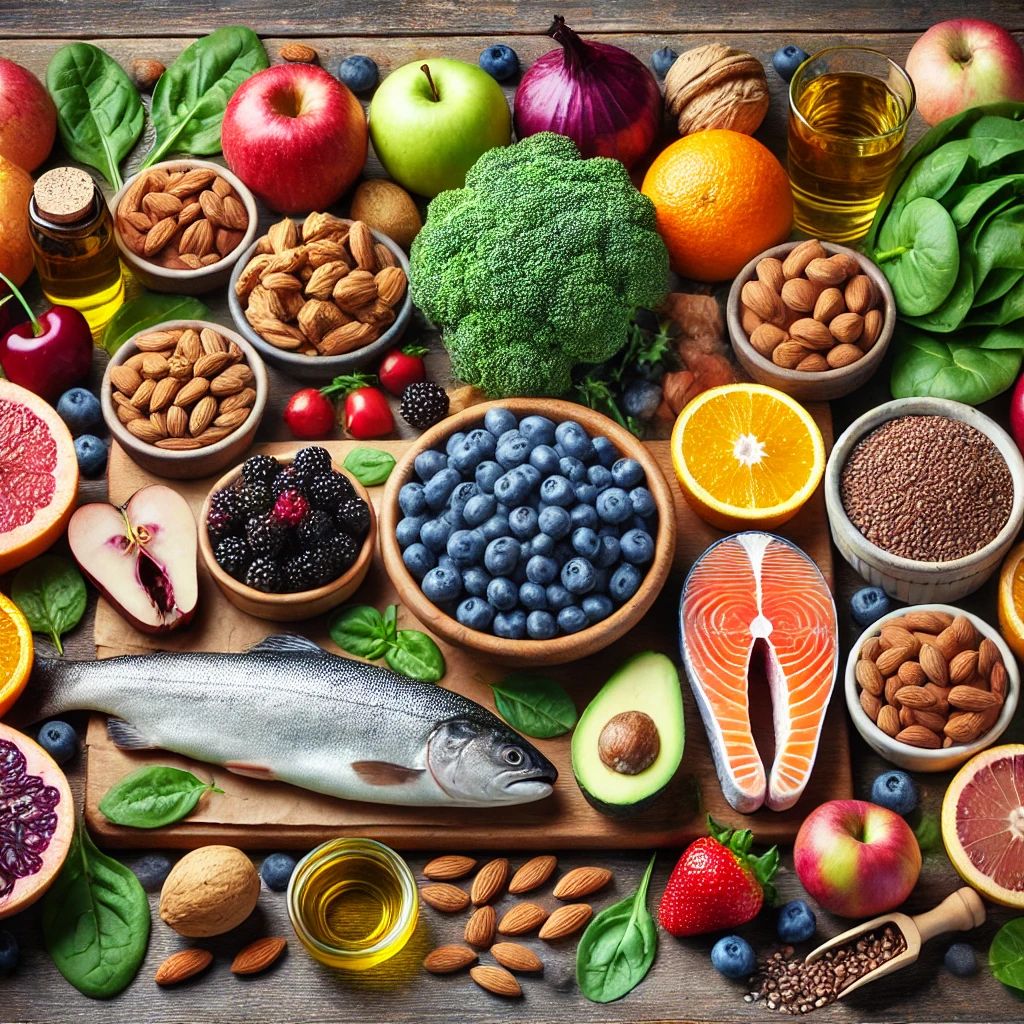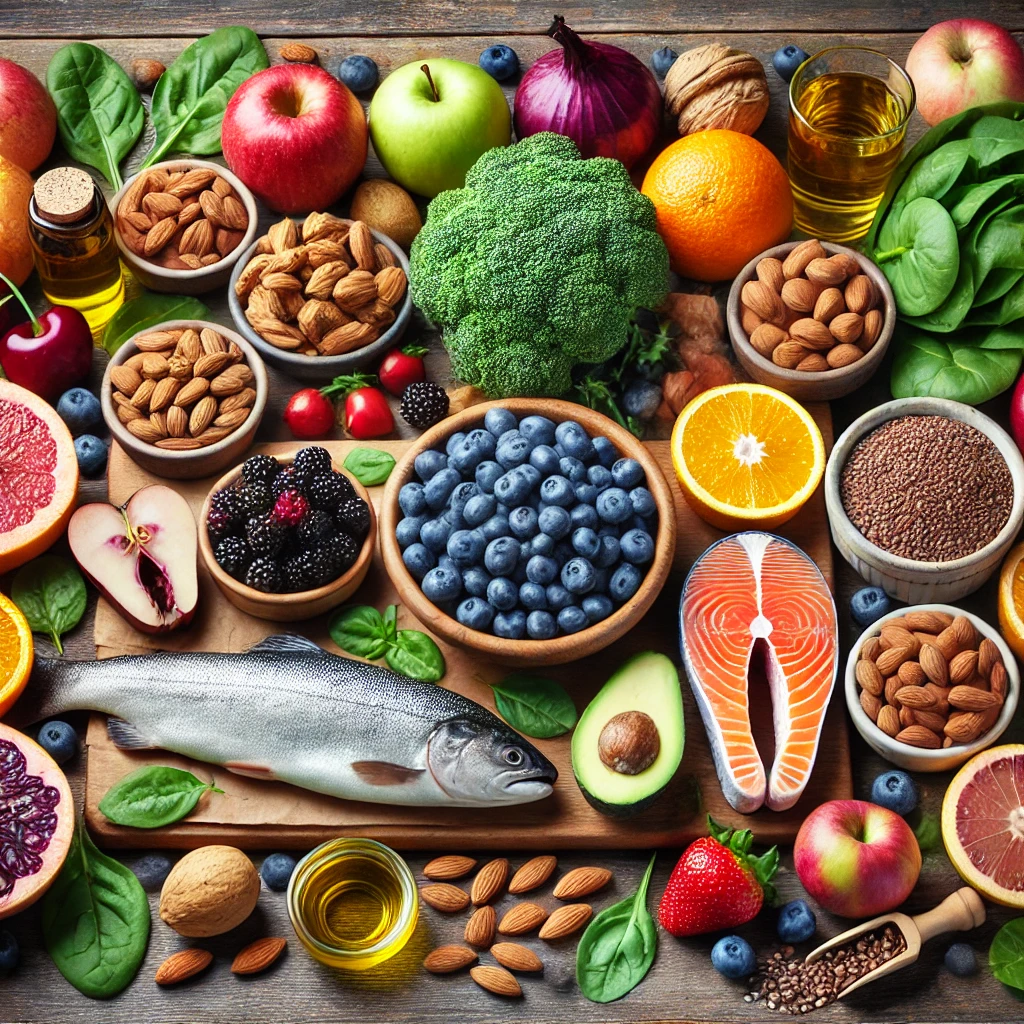For individuals with rheumatoid arthritis (RA), managing inflammation is key to reducing pain, stiffness, and joint damage. One powerful way to combat inflammation is through diet. An anti-inflammatory diet, rich in fruits, vegetables, healthy fats, and fish, can help reduce inflammation in the body, alleviate symptoms of arthritis, and improve overall health. This type of diet focuses on foods that are rich in antioxidants, omega-3 fatty acids, and fiber, which all play a role in lowering inflammation. In this guide, we will explore how certain foods can help reduce inflammation in people with rheumatoid arthritis and offer practical tips for following an anti-inflammatory diet.
What Is Rheumatoid Arthritis and How Does Diet Affect It?
Rheumatoid arthritis is an autoimmune disorder in which the body’s immune system mistakenly attacks the joints, leading to chronic inflammation, pain, and stiffness. Over time, this inflammation can damage joint tissue, leading to deformities and reduced mobility.
Diet plays a crucial role in managing inflammation because certain foods contain compounds that either promote or reduce inflammation. Anti-inflammatory foods are rich in antioxidants, which help neutralize harmful free radicals, and omega-3 fatty acids, which are known for their inflammation-lowering properties.
According to the Arthritis Foundation, adopting an anti-inflammatory diet can significantly improve symptoms of rheumatoid arthritis by targeting the root cause—chronic inflammation.
Key Anti-Inflammatory Foods for Arthritis
Several foods have proven anti-inflammatory effects and should be a part of your daily diet if you are managing arthritis. These include:
Fatty Fish: Salmon, mackerel, sardines, and tuna are rich in omega-3 fatty acids, which help reduce the production of inflammatory chemicals in the body. Omega-3s also support heart health, which is important for people with RA who are at increased risk of cardiovascular disease.
Fruits: Berries, cherries, apples, and oranges are packed with antioxidants like vitamin C and polyphenols that help reduce inflammation. These fruits are also high in fiber, which supports healthy digestion and overall immune function.
Vegetables: Leafy greens (such as spinach, kale, and Swiss chard), broccoli, and Brussels sprouts are excellent sources of vitamins, minerals, and antioxidants. They are particularly rich in vitamin K and sulforaphane, which may reduce inflammation and prevent damage to the joints.
Olive Oil: Extra-virgin olive oil contains oleocanthal, a compound with anti-inflammatory properties similar to ibuprofen. It’s an excellent source of healthy fats and can be used as a substitute for butter or other oils.
Nuts and Seeds: Almonds, walnuts, flaxseeds, and chia seeds are rich in omega-3 fatty acids and antioxidants, which can reduce inflammation. These are great options for snacks or as additions to salads and oatmeal.
Whole Grains: Brown rice, quinoa, and oatmeal provide fiber, which helps reduce inflammation by regulating the immune response. Whole grains are also low in glycemic index, which helps manage blood sugar levels and prevent inflammation.
Legumes: Beans, lentils, and chickpeas are high in fiber and protein, making them a good substitute for red meat. They also contain antioxidants and other nutrients that help reduce inflammation.

Foods to Avoid on an Anti-Inflammatory Diet
Just as important as knowing what to eat is understanding what to avoid. Certain foods can increase inflammation in the body and should be limited or eliminated from the diet:
Processed Foods: Packaged snacks, fast food, and pre-made meals often contain trans fats, refined sugars, and artificial additives that promote inflammation. These foods are high in calories and low in nutrients, contributing to weight gain and exacerbating arthritis symptoms.
Sugary Drinks: Sodas, sweetened juices, and other beverages with added sugars can spike blood sugar levels and trigger inflammation. Opt for water or herbal teas instead.
Refined Carbohydrates: White bread, pastries, and other refined grains can increase blood sugar and insulin levels, which may lead to more inflammation. Choose whole grains instead.
Red and Processed Meat: Sausages, hot dogs, bacon, and other processed meats contain high levels of advanced glycation end products (AGEs), compounds that promote inflammation. Limit consumption of red meat and choose lean proteins or plant-based options instead.
Excessive Alcohol: Drinking too much alcohol can increase inflammation in the body, especially in the joints. Moderate alcohol consumption is recommended, or avoid it altogether if it worsens symptoms.

Practical Tips for Following an Anti-Inflammatory Diet
To effectively manage arthritis through diet, consistency is key. Here are some practical tips for incorporating more anti-inflammatory foods into your daily routine:
Prioritize Omega-3-Rich Foods: Try to eat fatty fish like salmon or mackerel at least twice a week. If you are vegetarian or vegan, flaxseeds, chia seeds, and walnuts are good plant-based sources of omega-3s.
Add Color to Your Plate: Fill half of your plate with colorful fruits and vegetables at every meal. This ensures you are getting a wide variety of antioxidants and nutrients to fight inflammation.
Use Olive Oil: Replace butter, margarine, or other oils with extra-virgin olive oil when cooking or dressing salads.
Snack on Nuts: Keep a supply of almonds, walnuts, or mixed nuts on hand for a quick and nutritious snack that fights inflammation.
Limit Sugary Foods: Swap sugary desserts for naturally sweet options like fruit. Berries with a drizzle of dark chocolate or yogurt can make a great alternative to cakes or cookies.
Hydrate Wisely: Drink plenty of water throughout the day, and opt for green tea or herbal teas that contain anti-inflammatory compounds.
Sample Anti-Inflammatory Meal Plan for Arthritis
Here’s a sample meal plan to help you incorporate anti-inflammatory foods into your diet:
Breakfast: Oatmeal topped with berries, walnuts, and a sprinkle of flaxseeds.
Lunch: Spinach and kale salad with grilled salmon, avocado, and a lemon-olive oil dressing.
Snack: A handful of almonds and a small apple.
Dinner: Quinoa with roasted broccoli, Brussels sprouts, and baked tofu.
Dessert: Fresh mixed berries with a dollop of yogurt.
An anti-inflammatory diet is one of the most effective ways to manage the symptoms of rheumatoid arthritis. By incorporating foods like fruits, vegetables, fish, nuts, and whole grains into your daily meals, you can help reduce inflammation, alleviate pain, and protect your joints from further damage. For more information on managing arthritis through diet, visit the Arthritis Foundation.
For more health tips, check out our Health Journal and Nutrition.
1.Suggested Breakfast
2.Suggested Lunch
3.Suggested Dinner
Disclaimer: The information provided about this dietary regime is for educational and informational purposes only. It is not intended to replace professional medical advice, diagnosis, or treatment. While special dietary regimes may offer benefits for certain individuals, individual results may vary. Always consult a qualified healthcare professional or dietitian before starting any diet to ensure it is suitable for your specific health needs and conditions.
